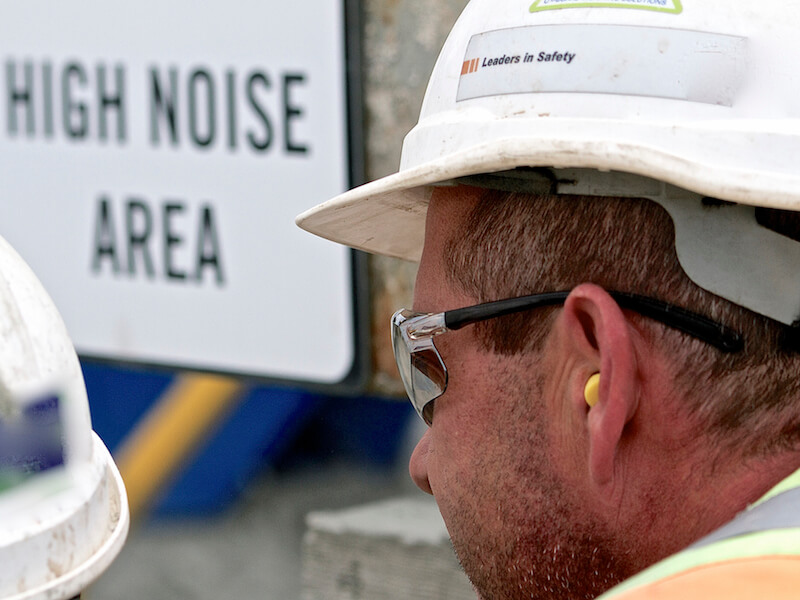
Your hearing can be harmed by a noisy workplace and it can also affect your concentration. Your hearing health can be negatively impacted by even moderate noise levels if you’re exposed to it for numerous hours every day. This is why questions like “what hearing protection should I use?” are worth asking.
It isn’t common knowledge that several levels of hearing protection are available. But it seems logical when you stop to consider it. A jet engine mechanic is going to need a different level of protection than a truck driver.
Hearing Damage Levels
The fact that 85dB of sound can start to harm your ears is a general rule of thumb. We’re not really used to considering sound in terms of decibels (even though that’s how we calculate sound – it just isn’t a figure we’re used to putting into context).
Eighty-five decibels is approximately how loud city traffic is when you’re driving your car. No biggie, right? Wrong, it’s a big deal. At least, it’s a big deal after several hours. Because it isn’t just the volume of the noise that you need to pay attention to, it’s how long you’re exposed.
Typical Danger Zones
If you’re exposed to 85 dB of noise for eight hours every day or more, you need to consider using hearing protection. But that’s not the only threshold you should be aware of. If you’re exposed to:
- 90 dB (e.g., lawnmower): Anything over four hours is considered harmful to your hearing.
- 100 dB (e.g., power tools): Your ears will be injured when exposed to this level of noise for 1 hour a day.
- 110 dB (e.g., leaf blower): Anything over fifteen minutes will be damaging to your hearing.
- 120 dB (e.g., rock concert): If you are exposed to this level of noise for any amount of time, your hearing can be damaged.
- 140 dB (e.g., jet engine): Any exposure can cause damage and might even cause instant pain.
You’ll want the ear protection you wear to be sufficient to bring the volume below that 85 dB level, particularly if you’re exposed to those sounds for any duration.
Find a Comfortable Fit
The effectiveness of hearing protection is quantified by something called a Noise Reduction Rate, or NRR. The higher the NRR, the quieter outside sound will become (temporarily).
It’s incredibly important that you pick hearing protection with a high enough NRR to keep you safe (and your workplace will usually make recommendations about what level might be appropriate).
Comfort is also an important factor to think about. It turns out, comfort is extremely important to keeping your ears healthy. This is because you’re not as likely to actually wear your hearing protection if it’s uncomfortable.
Hearing Protection Options
You’ve got three basic options to choose from:
- Earmuffs.
- In-ear earplugs
- Earplugs that stay just outside of the ear canal.
There are benefits and drawbacks to each type of protection, but the majority of your hearing protection choices will depend upon personal preference. For some people, earplugs are irritating, so they’d be better served with earmuffs. For other individuals, the ability to put earplugs in and leave them in is a better alternative (of course, at the end of the workday you will need to take them out for a good cleaning).
Find a Constant Level of Hearing Protection
Any laps in your hearing protection can result in damage, so comfort is a major factor. If you take your earmuffs off for ten minutes because they’re heavy and uncomfortable, your ears can suffer over the long run. So the most crucial decision you can make is to pick hearing protection that you’re comfortable leaving in place during your workday.
Investing in the degree of hearing protection you require can help keep your ears happy and healthy.
Call Today to Set Up an Appointment
References
https://www.cdc.gov/nceh/hearing_loss/what_noises_cause_hearing_loss.html
